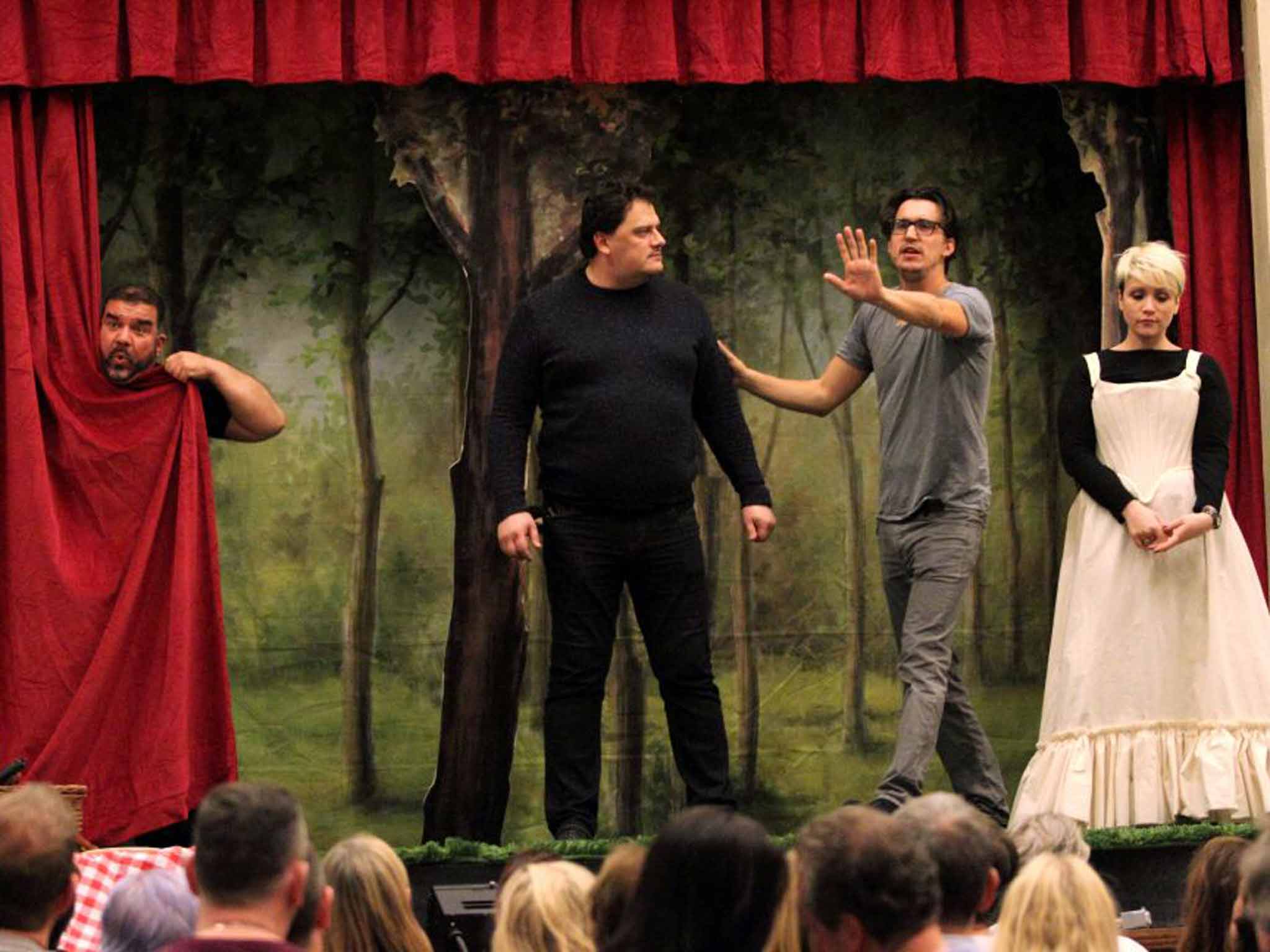Pagliacci and Cavalleria rusticana: Smelled any good operas lately?
The Royal Opera's production of 'Cav and Pag' could take audience involvement to a new level

Operatic realism, or verismo, is a smallish Italian genre that can pack a massive punch in the theatre. Take the ever popular double bill of Cavalleria rusticana by Pietro Mascagni and Pagliacci by Ruggero Leoncavallo, commonly dubbed “Cav and Pag”. It's high-octane, high-intensity and high-octave stuff: the music wrings out the emotion, the top notes thrill, and all of life is here, with passion, jealousy, murder and… baking?
Or so you may find in the Royal Opera House's new production by the Italian director Damiano Michieletto, which opens on 3 December. Apparently, his response to realism may extend to aromas that could circulate through the auditorium. The religious procession in Cavalleria rusticana might blanket operagoers gently in the scent of incense. And when I spoke to Michieletto he admitted that he had been considering how to convey to the audience the whiff of fresh bread from an on-stage bakery.
Opera and realism may sound like a contradiction in terms; there's nothing especially realistic about an art form in which people keep bursting into song. But the Italian composers of verismo turned their backs upon opera that depicted gods, kings and monsters, focusing instead on “real” life at the grassroots end of the social spectrum. They wrote of the suffering of everyday folk: soldiers, mothers, lovers, students, circus performers. Michieletto wants to delve headfirst into this realism – and one way to do that is to enlist the evocative power of the nose.
“For me, incense is a way to take the audience into the atmosphere of sacredness in this procession,” says Michieletto. “This is a piece of verismo but, of course, in theatre everything is always fake. The most interesting thing is when something fake becomes something you can believe in, taking you into a dimension where you can recognise yourself.”
The opera's conductor, the Royal Opera House's musical director Sir Antonio Pappano, certainly can recognise himself. “When I was a kid, I spent a year in the south Italian village where my parents were born, which is very similar to the place where either of these operas could be set,” he says. “The sensory memory I have most strongly is the smell of the oven. Everybody went to buy fresh bread and the scent was so compelling – always a delight in the morning. So, for me, it's a very strong association.”
This is by no means the first time that extra-sensory experiences have been employed at the opera. In 1988, the director Richard Jones created for English National Opera a production of Prokofiev's The Love for Three Oranges in which the audience was issued with scratch-and-sniff cards. One participant in Portland Opera's staging of the same production recalls: “The odours, if I remember right, were gunpowder, cleaning solution, fart, meat and citrus.”
Scents can be pleasanter than that. Recently, a performance of Handel's Acis and Galatea at St John's, Smith Square in London, enjoyed a bespoke surrounding scent created by the musician and perfumer Sarah McCartney of 4160Tuesdays – a move, she wrote, that was historically justified: “In Handel's time, scents abounded – from animals, lack of public hygiene, both personal and civic, and from expensive perfumes used by wealthy individuals and establishments, including the church. An opera would have been intensely scented, both accidentally and on purpose.”
Sometimes, composers themselves call for olfactory stimuli. In 2009, the Guggenheim Museum in New York presented Green Aria, an opera with music by Nico Muhly and Valgeir Sigurdsson specifically designed to be smelled; why should scent not be another way to tell a story? The hardest part, according to reports, was how to relay the perfumer Christophe Laudamiel's succession of scents to the audience.
All manner of sensory adventures abound at the Birmingham Opera Company (BOC), which, under Graham Vick's direction, often works in unconventional spaces that offer potential for “immersive” experiences – building perhaps on the pioneering work of innovative theatre companies such as Punchdrunk. BOC audiences found themselves walking through an evocation of a lunatic asylum as they arrived for Don Giovanni, and were asked to remove their shoes when entering for an Otello that tackled the theme of Islamophobia. Those attending the 2012 world premiere of Stockhausen's opera Mittwoch aus Licht were greeted by live camels – which must have smelled quite interesting.
But best of all, those with a sweet tooth could try the one-woman opera Bon Appétit! by Lee Hoiby: adapted from a classic Julia Child cookery broadcast, it requires the singer to bake a chocolate gateau on stage. When the mezzo-soprano Emma Curtis performed it at the Bloomsbury Festival recently, her audience could first enjoy the smell of the baking cake, then eat it at the end. It was even gluten-free.
Not that smell can entirely steal the musical thunder of operas as stirring as “Cav and Pag”. “People who know these works will come for a red-blooded, hot-blooded evening of passion and direct expression,” says Pappano. “These two operas are not about technology or about smells. They're about tortured characters. They're about people.”
He has nothing against scented opera, he adds, “but preferably no flowers. I'm allergic to them”.
'Cavalleria rusticana' and 'Pagliacci', Royal Opera House, London, from 3 December (020 7304 4000)
Subscribe to Independent Premium to bookmark this article
Want to bookmark your favourite articles and stories to read or reference later? Start your Independent Premium subscription today.

Join our commenting forum
Join thought-provoking conversations, follow other Independent readers and see their replies